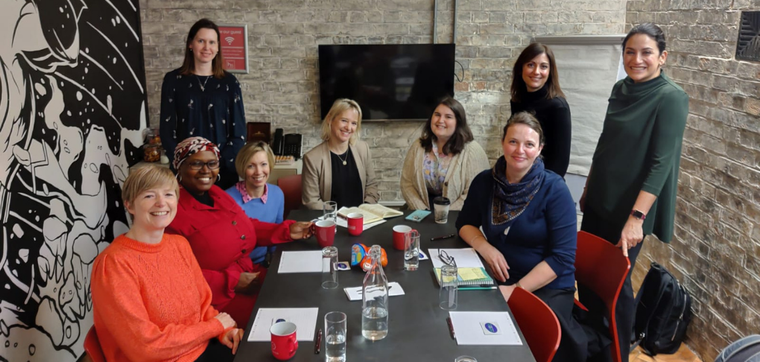Posted By: Nikki Wilson
16th March 2022
3 minute read

I am now seven weeks into my role as CEO of the Maternal Mental Health Alliance (MMHA) and I have been incredibly impressed by the commitment of everyone I have had the pleasure of talking to. I met some of our members virtually when chairing the March member’s meeting, and the passion literally shone through the screen! It is true what Dr Alain Gregoire said about something exciting happening by coming together. I feel extremely lucky to start my new role with this inspiring experience and I will make sure the MMHA continues to create opportunities to listen and learn from each other.
The legacy of those individuals and organisations involved in starting the MMHA and who have contributed to the immense achievements of the past 10 years is clear to see. Sustained and collective campaigning efforts have led to the commissioning of specialist perinatal mental health services across much of England, with the devolved nations following suit. Although we maintain focus on the work still to be done in this area, it makes absolute sense to broaden our scope to ensure that all women during pregnancy and after birth can access the essential care and support they need in the right place and at the right time.
For women and families with less severe maternal mental health needs, but for whom a lack of support can still lead to devastating outcomes, our colleagues within universal services are ideally placed to identify and provide support. With all women offered an average of 16 appointments during the perinatal period, campaigning for investment in specialist maternal mental health care within universal services is the right next phase of our ambition to Make All Care Count.
The recent economic report has proposed an exciting and logical new integrated model of maternal mental healthcare. However, we must acknowledge the complex landscape. We are in a time when colleagues are exhausted from the pandemic, facing increasing demands on services and in the midst of an unprecedented recruitment crisis.
On top of this, we know that there are many women and families whose suffering is not recognised and who do not access services or disclose their struggles to professionals. The latest MMBRACE report revealed the huge disparities in outcomes for people who experience trauma, discrimination, and poverty. If we didn’t know before, the pandemic has shown us how physical and mental health needs are magnified by social, economic, and cultural inequalities.
I have spent many years supporting and advocating for the most excluded women in our society. Women who have been misunderstood and for whom judgement and shame run deep. We need our services to be properly resourced and trained to understand this trauma and be welcoming and inclusive. When we talk about all women, we must include those who do not expect to have a positive experience of ‘the system’.
If we are to genuinely reach all women and families, we must turn our attention to how we work. We need to challenge those rigid systems which are so under-resourced that committed professionals are unable to provide the level of mental health care they want and women need. There is huge potential for the sector to work together across professions, including community grassroots organisations, to be greater than the sum of our parts if we can create the time to build the relationships required and ensure all perinatal services are enhanced and protected.
At the Alliance, we are led by listening and learning from our expert members and the real-life experiences of women and families who have been impacted by perinatal mental illness. Making All Care Count is a significant task and one that I see from the member’s meeting we all want to embrace.
Across the sector, the ambition to collectively do the best we can for women and families is phenomenal. And we are right to be ambitious. Every day, our members and others across our communities are providing high-quality trauma-informed services which are inclusive, welcoming and embrace diversity. Supporting women during this vulnerable time in their life is not only vital to them as individuals but sets them, their babies, their families and the communities in which they live for a brighter future.
Survivors learn that their sense of self, of worth, of humanity, depend upon a feeling of connection to others. The solidarity of a group provides the strongest protection against despair.
Stephanie Covington
This is true of women and families in their recovery from maternal mental health problems. This is also true of us as an Alliance.